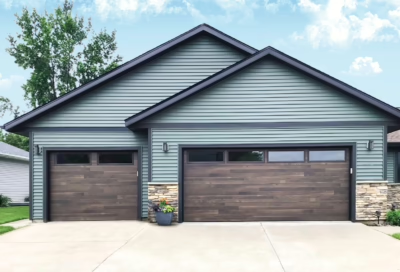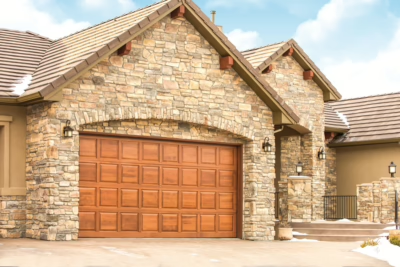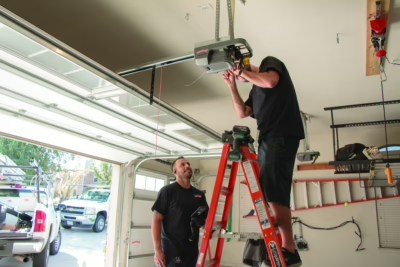Smart technology is rapidly changing the way homeowners interact with their living spaces — and the garage is no exception. Smart garage door openers offer features like remote access, real-time alerts, and voice control integration, making them one of the most convenient upgrades you can make to your home.
But like any connected device, smart garage openers come with both advantages and potential drawbacks. In this article, we’ll explore the key pros and cons of smart garage door openers so you can decide if one is right for your home and lifestyle.
What Is a Smart Garage Door Opener?
A smart garage door opener is a motorized unit that connects to your home’s Wi-Fi network and allows for remote operation using a smartphone app, voice assistant, or smart home hub. Most models also support traditional remotes and wall controls, but the real power lies in mobile monitoring, automation, and alerts.
These systems typically include:
- Wi-Fi connectivity
- Mobile app integration (e.g., myQ, Aladdin Connect)
- Compatibility with Google Assistant, Amazon Alexa, Apple HomeKit, or similar
- Real-time activity tracking and notifications
- Additional features like auto-close timers and guest access controls
The Pros of Smart Garage Door Openers
1. Remote Access and Control
With a smart opener, you can open or close your garage door from anywhere using your phone. Whether you’re at work, on vacation, or just upstairs, the ability to control your garage remotely adds flexibility and peace of mind.
This is especially useful if:
- You forget to close the door when leaving
- A friend or family member needs temporary access
- A delivery needs to be securely stored inside the garage
2. Real-Time Notifications and Monitoring
Most smart openers will send you push alerts when your garage door is opened, closed, or left open for a set amount of time. This feature helps improve security and prevents accidents.
Examples of use:
- Get notified if your garage opens unexpectedly
- Check a log of when family members come and go
- Receive alerts if the door is open too long at night
3. Increased Home Security
When integrated with a smart home system, your garage becomes part of your overall security network. Some models offer video integration, geofencing, or even auto-lock features.
Security enhancements include:
- Confirming door status remotely
- Setting auto-close timers to reduce human error
- Monitoring garage entry when you’re not home
4. Hands-Free Convenience
With voice assistant support, you can open or close the garage door without reaching for a remote. This is particularly handy when your hands are full — whether you’re unloading groceries or carrying gear.
Compatible platforms often include:
- Amazon Alexa
- Google Assistant
- Apple HomeKit
- SmartThings or IFTTT automations
5. User Access and Guest Control
Smart openers allow you to create guest profiles, temporary access codes, or scheduled access for household members. This makes them ideal for families, pet sitters, or house guests.
Some systems even let you:
- Set one-time access codes
- Create recurring access schedules
- Track which users opened the door and when
The Cons of Smart Garage Door Openers
1. Dependence on Wi-Fi and Power
Smart garage door openers rely on a stable Wi-Fi connection. If your internet goes down, you may lose app control and alerts — though most units still function with a manual wall button or remote.
Potential downsides:
- Delayed response times during slow connections
- Total smart features outage during internet loss
- Battery backups may be needed during power failures
2. Security and Privacy Concerns
Like any internet-connected device, smart openers introduce some level of cybersecurity risk. Poor password practices or outdated firmware can create vulnerabilities.
To stay protected:
- Use strong, unique passwords
- Regularly update your app and device firmware
- Avoid sharing login credentials with too many users
While these concerns are real, modern systems use encrypted signals and multi-layer authentication to mitigate threats.
3. Higher Initial Cost
Smart openers typically cost more than traditional systems — especially when purchasing models with integrated cameras or extra accessories.
Typical costs include:
- $200–$400+ for a quality smart unit
- Additional fees for camera or cloud storage (optional)
- Potential installation fees if wiring or configuration is complex
However, this cost often pays off in terms of long-term functionality and peace of mind.
4. Compatibility Issues
Some older garage doors or setups may not be compatible with smart openers or may require special adapters or add-on devices.
Check compatibility with:
- Door type (belt, chain, screw, or jackshaft)
- Smart home ecosystems (Apple vs. Google vs. Alexa)
- Wiring and ceiling mount requirements
It’s always best to consult with a professional installer — like DuraServ — to ensure the system will work properly with your existing setup.
Real-World Example: A Smarter Solution in Fort Myers, FL
A homeowner in Ft. Myers — one of DuraServ’s residential markets — regularly had packages left outside and was concerned about garage security while traveling. Their old chain-drive opener also made excessive noise and lacked any mobile features.
DuraServ recommended and installed a quiet, belt-drive smart opener with built-in Wi-Fi, LED lighting, and app-based control. The homeowner now receives notifications any time the door is opened, can let delivery drivers in remotely, and no longer worries about whether the garage was left open.
They also set up voice control via Alexa, which makes everyday use far more convenient. Within weeks, they reported better peace of mind and appreciated the quieter, modern functionality.
Is a Smart Opener Right for You?
Smart garage door openers are ideal for homeowners who value:
- Remote control and monitoring
- Modern home security features
- Integration with existing smart home platforms
- Flexibility for guests or deliveries
- Peace of mind when away from home
However, if you don’t need connected features — or your garage setup is older and hardwired — a standard opener may still meet your needs at a lower cost.
Final Thoughts
Smart garage door openers represent the next evolution in home access and convenience. From real-time alerts to voice control and guest scheduling, they make your garage safer, smarter, and more connected to your lifestyle.
While they’re not without limitations — like dependency on Wi-Fi and a higher price point — the benefits often outweigh the drawbacks for busy households looking to modernize.
At DuraServ, we help homeowners choose and install garage door openers that match their needs, whether you’re upgrading for security, convenience, or to complement a smart home system. Reach out to learn how we can help make your garage smarter, safer, and easier to manage.



